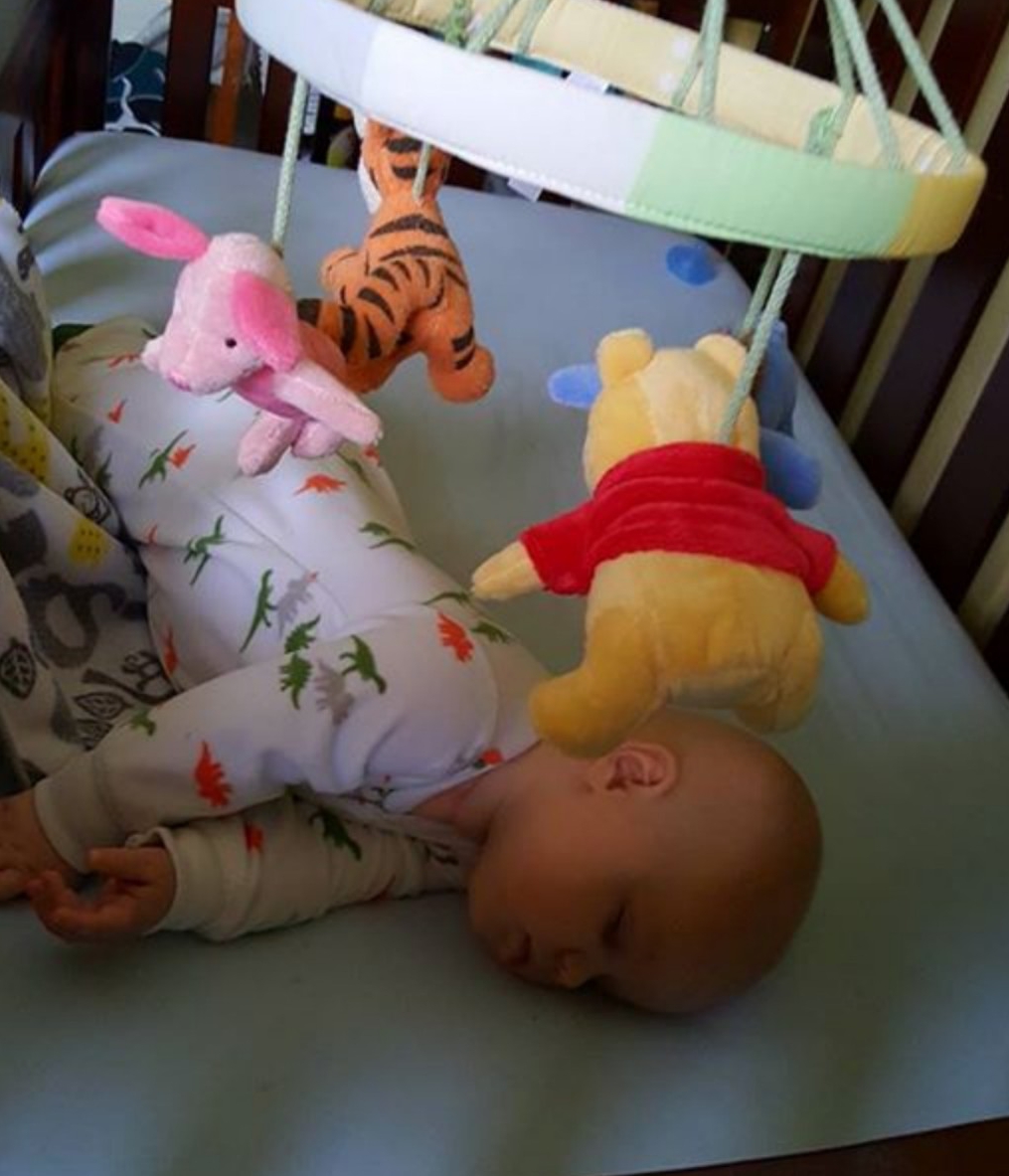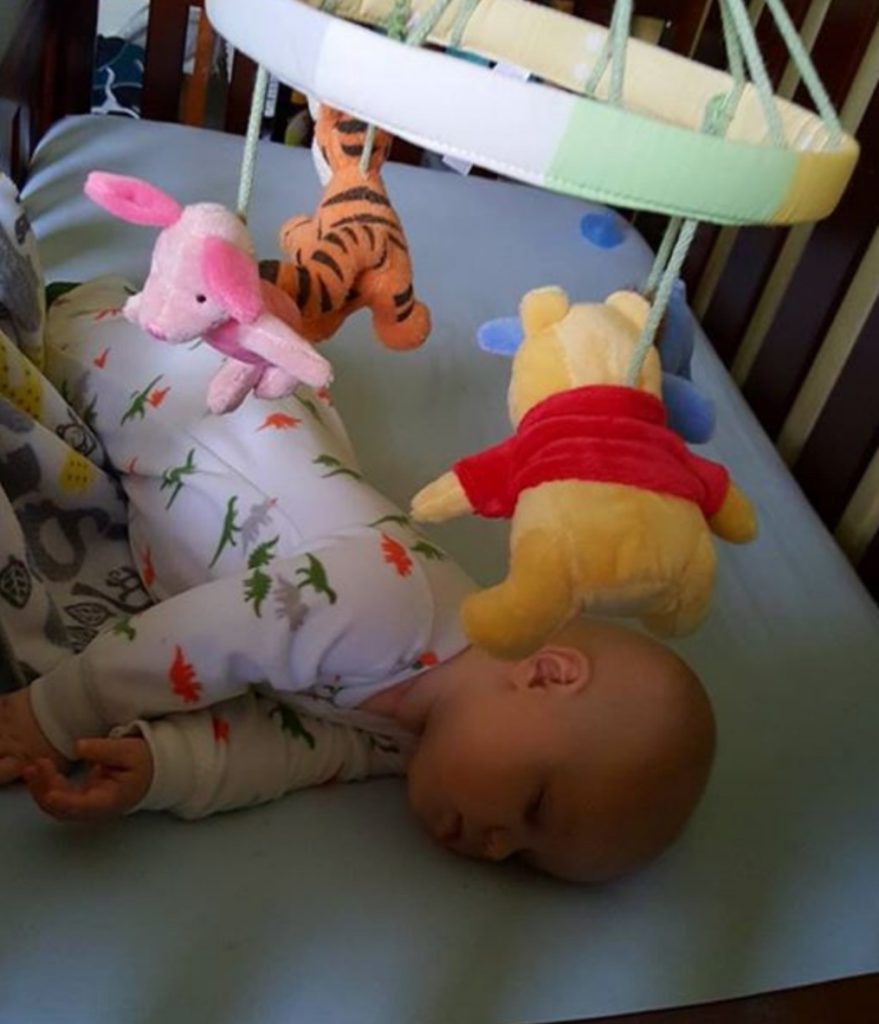
One of the most frequently asked questions I get as a mother of a young child is “How is he sleeping?” When my gut reaction is to answer with “none of your damn business, that’s how,” it’s evident that this is a sore spot for me and so many other moms who constantly wonder if we’re bad parents when our kids are terrible sleepers. It’s time to reeducate ourselves on normal baby sleep patterns, because our expectations aren’t realistic.
Understanding Baby Sleep Patterns
As a baseline, adult sleep cycles average at least 90 minutes. That means roughly every 1 ½ hours, we’re waking in the night, whether we realize it or not. Adult sleep is also comprised of about 25% REM sleep, or the ‘dream state’ that is lighter and less restful. By comparison, babies’ average sleep cycles only last about 45-50 minutes and are comprised of at least 50% REM sleep. Babies are designed to be more sensitive to their surroundings, so naturally their sleep patterns will be different from adults.
Sleeping Through the Night is a Misnomer
Once we understand that babies are biologically designed to be sensitive sleepers, we need to look at what sleeping through the night actually means. The definition can vary. For babies older than three or four months, a six-hour stretch is considered “sleeping through the night.” That’s it: six hours. After newborns’ circadian rhythms are established, nighttime sleep is usually – not always – comprised of two or more longer stretches, with wakings in between.
Your Baby Can Sleep Through the Night by Six Months … Right?
I never expected we could flip a switch and one day, our son would start sleeping consistently and for long stretches. But I also never expected to still be up with him at least twice a night past a year old. According to this article by KellyMom, 55% of babies are still waking at night at one year. Phew! Not alone!
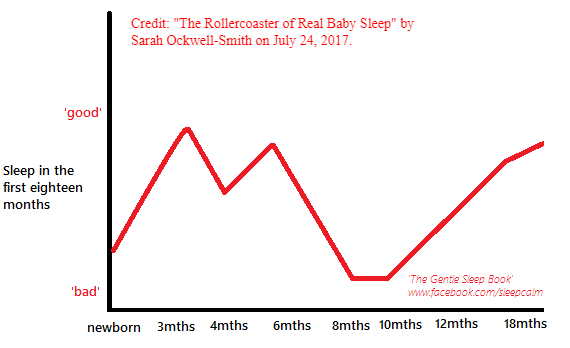
What is ‘normal’ depends entirely on the child. Typically, baby sleep peaks at around three months, and that’s the best it’s going to get for the first year. Sorry to say. Variables like teething, developmental leaps, physical skills, illness, and separation anxiety all interfere with sleep for many months. Those variables affect babies differently; mine has always been extremely sensitive to outside stimuli.
There Is a WIDE Range of Normal with Baby Sleep
Take a look at this graph from the American Academy of Sleep Medicine (2014). Take heart and know that when your baby wakes up at night, you are not alone! Half of all babies at 9 and 12 months are waking one or two times a night. In fact, almost 20% of one-year-old babies are waking at least three times every night.
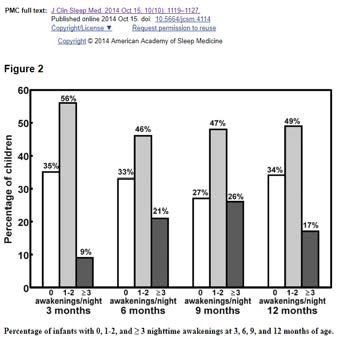
You should also see this Excel graph that tired parents started when their baby was about three months old. As Redditer jitney86 said, “…we were going crazy with the lack of predictability that comes with having a newborn. We found it helpful and just kept going.” The blue represents sleep, which you can see is very much disrupted for most of the first year and into months 12-15.
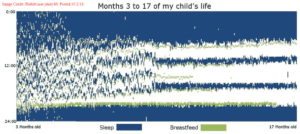
I also want to point out that Western culture tends to associate early independence with baby sleep more than most of the rest of the world. In Japan, many babies sleep in their parents’ beds through infancy and toddlerhood. Babies typically fall asleep next to their mothers in many parts of Africa. And in Bali, most mothers practice baby-wearing and co-sleeping until ages 2 or 3. It seems that American moms in particular stress out about their baby’s sleep more than their counterparts in other countries.
Other Common Baby Sleep Myths
It’s a mistake to assume that starting a young infant on solids, putting cereal in his bottle, supplementing with formula, or feeding a baby more food in the evening will get your little one to sleep longer or better. It’s also a myth that formula-fed babies sleep better than breastfed babies. Breastfed babies tend to wake more often at night to nurse because breastmilk is digested faster than formula, but that doesn’t mean a breastfed baby won’t sleep well at night. Some babies are good sleepers … and some aren’t. And that’s okay.
When we know what normal baby sleep patterns are, and adjust our expectations accordingly, dealing with the exhaustion becomes a little easier. You know it’s temporary, developmental, and most importantly – you’re not doing anything wrong.
We’ll sleep someday, right?



